THE RUNDOWN
As a young singer, fresh out of college with a music degree from one of the most prestigious music schools in the South, I sang on several recording projects. I sang song demos for country music songwriters and background vocals for recording artists. I sang “guide vocals” for choral print music publishers and I sang a lot of worship music for church services.
I worked many of these jobs for free. Others paid around $25 per hour, and I was grateful for the work. It was the mid-90s and I was in my mid-20s.
I also acted. I was a background actor for Toyota, Cracker Barrel, and The Green Mile starring Tom Hanks. I was featured in a couple of short films and was the lead in a student film.
I was happy to do these small, low-paying, and no-paying jobs because I was taught that this was how it was done. Say “yes” to everything, work for practically nothing to “get your foot in the door” and “pay your dues.” After all, “work begets work” and “you never know what one job will lead to.” Further, my faith community told me not to pursue money and that my employer was not my provider. If I was faithful to what God had called me to do and gifted me to do, he would provide for my young family and me.
In time, this work begot a staff position at a Nashville church as a music director. They needed someone with charisma to lead and develop a young and innovative worship service. The position allowed me to do what I do best: create and collaborate with other creatives. I thrived creatively, but professionally it was not enough. As a part-time contractor, there were no health or retirement benefits. I continued seeking and accepting other gigs and chauffeured on the side.
Meanwhile, the church service grew to capacity and plans were made to build a new facility to accommodate it. When I would propose coming on staff full time, the answer was “not yet” but possibly in the future. Unfortunately, that future consisted of a change of personnel and the disruption of the COVID-19 pandemic. New leadership wanted to shake things up, as is their right. I was out the door, but the service and music program that I grew was well on its legs.
Now, in 2024 I’m still looking for gigs. I’ve just been offered a new one at a local university. They’re looking for actors to role-play with their students in a new med school. This is a growing field called medical simulation and I’ve been doing this work just shy of a decade with another university down the street. The new program boasts the best pay in town. The rate: $25 an hour. At my level and after 30 years, the going gig rate is still $25 an hour.
A TALE OF EXPLOITATION
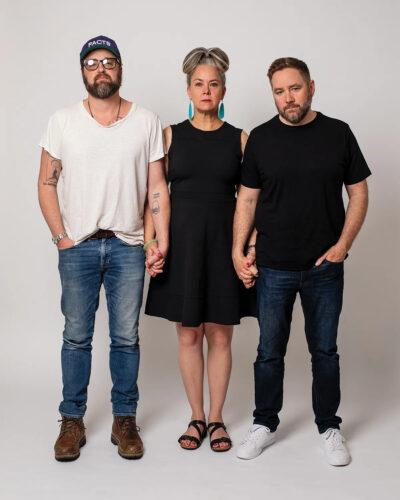 I read a recent article in Variety, which tells the tale of actors Heather Donahue, Michael C. Williams, and Joshua Leonard. In 1997 they answered an ad in Backstage for an indie film that would pay $500 a week plus meals and travel expenses. In exchange, the young, inexperienced 20-somethings were left in the woods with video cameras, audio recording equipment, and “a series of story prompts.” They were asked to record and improvise an entire movie.
I read a recent article in Variety, which tells the tale of actors Heather Donahue, Michael C. Williams, and Joshua Leonard. In 1997 they answered an ad in Backstage for an indie film that would pay $500 a week plus meals and travel expenses. In exchange, the young, inexperienced 20-somethings were left in the woods with video cameras, audio recording equipment, and “a series of story prompts.” They were asked to record and improvise an entire movie.
Like all of us, the actors were happy for the work. Perhaps they could get a copy to play for friends and family, and hopefully the footage would be good enough to add to their performance reels. Because, you know, work begets work.
What they made was The Blair Witch Project. This film would become one of the most influential horror films of our generation and, with the low budget of $35,000, one of the most profitable independent films ever made. Profitable, that is, for the film’s producers and their production company Haxan Films. Later, Artisan Entertainment and Lionsgate would relish the loot. Not so profitable, as the article explains, for the young actors who defined the project. After the film grossed its first $100 million, the three actors were rewarded–with a fruit basket.
It’s another verse in an old song. No one wants to pay more than they have to—not for groceries, not for gas, and not for talent. I don’t suppose I can blame anyone for that. We each have our own incentives.
A TALE OF RIGHTEOUSNESS
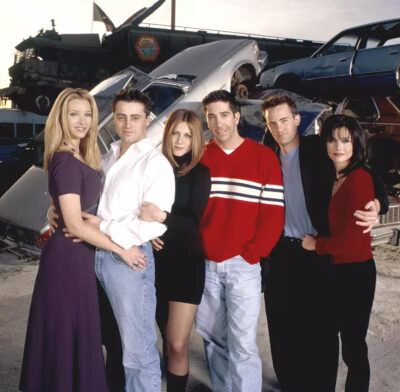 Consider, by contrast, how the cast of Friends shared justly in the enormous profits of their TV show. Initiated by David Schwimmer, the cast presented a united front to NBC during negotiations for their third season and successfully negotiated for pay equality for the six of them. Reportedly (and respectfully), Schwimmer himself took a pay cut in this negotiation. The final season had the actors earning $1 million per episode.
Consider, by contrast, how the cast of Friends shared justly in the enormous profits of their TV show. Initiated by David Schwimmer, the cast presented a united front to NBC during negotiations for their third season and successfully negotiated for pay equality for the six of them. Reportedly (and respectfully), Schwimmer himself took a pay cut in this negotiation. The final season had the actors earning $1 million per episode.
Of course, there are major differences between a low-budget, nonunion, independent horror film and a 10-year network television hit (especially in the ‘90s). But the lesson remains: solidarity increases negotiating power. When found on the losing end of a glaring differential in power, you need a team.
A CALL FOR UNITY
I didn’t have a negotiating team as a fresh-out-of-college demo singer or a choir member or a background actor or a music minister. And I don’t have a team for my work in medical simulation. But I do now have a team in SAG-AFTRA. SAG-AFTRA is the professional performers union that represents on-camera and on-mic talent. It is a collective of freelance gig workers that allows us to present a united front in negotiating with those that would hire us. Perhaps you saw the power of this last summer when the union struck for AI protections, better working conditions, and increased pay in the new streaming era of film and television. By almost all accounts, the strike was a success.
However, things are far from roses and lollipops for this showman. The whole industry has downsized to reckon with itself and, as I write this, a sister union of behind-the-scenes craftspeople is negotiating its latest contract. I stand with them as fellow artisans and support them fully.
IS RIGHT TO WORK RIGHT?
One of the biggest challenges I have in this career is closer to home. I live in Nashville and, like half the country, our state supports Right to Work (for less) legislation. We recently even tainted our constitution with it. (You can read my opposition to this here). Our government believes that businesses have the best interests at heart for its workers and employers and employees can work things out as equals. Our voting constituency concludes that they’re better off alone and independent. Tennesseans believe that the market will reward the best workers and that good work will be noticed, appreciated, and compensated fairly. I hope these things are true for you. They have not been true for me.
I am not anti-business and don’t think that businesses are inherently bad. I have a business degree where I studied social entrepreneurship. I know the positive potential businesses hold for their communities. I just recognize that incentives lie where incentives lie.
The delusion behind Right to Work legislation is that the union is a third party. It’s cast as a boogeyman and bully. The union is the “Three Billy Goats Gruff” troll under the bridge, scheming to extract the worker’s wages on his way home to his family. The success of this narrative is testament to the very power differential a union tries to diminish.
WHY UNION?
The truth is a union is just a bunch of workers. One joins because they’re a worker like the others. In this regard, I am my union. The union is me and others like me. That’s why we unionize. Unions are not perfect. I may not like everything my union does but, as a member, I have a say in it. To make us out as a third party with opposing interests to employees is a strategic attempt to weaken the voice of the workers. It’s a way the business community divides and conquers its subordinates. This is not inherently evil; it is simply their incentive.
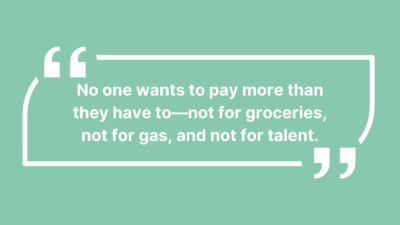 Imagine NBC having the ear of Lisa Kudrow and saying “Don’t let this Schwimmer group tell you what to do. They have no right to force you to align with their cause! Who needs them?” Further, imagine them taking steps to keep Kudrow apart from her colleagues and marketing messages that imply the Schwimmer gang is out to take her freedom away and they are a bunch of bullies! And that, really, if she just works directly with NBC on her own, she will be better off.
Imagine NBC having the ear of Lisa Kudrow and saying “Don’t let this Schwimmer group tell you what to do. They have no right to force you to align with their cause! Who needs them?” Further, imagine them taking steps to keep Kudrow apart from her colleagues and marketing messages that imply the Schwimmer gang is out to take her freedom away and they are a bunch of bullies! And that, really, if she just works directly with NBC on her own, she will be better off.
If Kudrow was not already famous and starring in one of the biggest hits in the history of television, she would have tremendous pressure to think “Yeah, they’re probably right. I’m just glad I have the gig. I’ve already been rejected by SNL and was fired from Frasier. I think I’ll just take whatever they give me and not rock the boat.” There is no way she would have out-negotiated her peers’ alliance. This is the situation when laborers are intimidated by the rhetoric of the Right to Work lie.
WHO SHOULD JOIN?
I don’t believe that every actor should join SAG-AFTRA right away (not every actor is qualified). The primary position of the union (aka a bunch of actors seeking work, just like you) is that employers agree to a SAG-AFTRA contract appropriate to the project. We deny our services to those that won’t. Therein lies the rub. Because of our state’s Right to Work (for less) status, employers are simply less inclined to agree to this and actors are less inclined to insist on it. It’s a tough business already and the last thing an actor wants to be perceived as is “difficult.”
Businesses know this and it’s why they support Right to Work (for less) legislation so much. And so long as production companies can find talented and qualified nonunion actors, it is better for them, just as it was better for Haxan Films and the producers of The Blair Witch Project.
Selah.
THE NASHVILLE WE WANT
In Nashville (and the Southeast in general) there are many nonunion actors who are eligible to be union members. Often referred to as “SAG-e” or “SAG-eligible,” this means that they have enough professional credits for membership, but they have yet to join. This allows the actor to work both union and nonunion jobs. They believe that this is the best of both worlds. It probably is, but it’s lacking the vision for a new world–one where better, career-making, and career-sustaining projects come to town. A world where we’re not just considered “locals” (industry code for “second rate”). A world where I don’t also have to work side gigs for $25 an hour or at a warehouse just so my wife can receive medical care.
It’s a naive vision, perhaps. I know most actors, even in union-friendly L.A., are hustling multiple jobs to make ends meet. I understand that persistent optimism is an occupational hazard for the artist. But ask yourself: would you want it any other way?
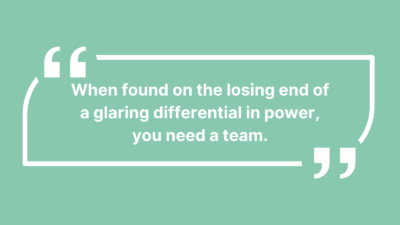 Bonnie Gillespie and her “ninja” devotees speak of creating the Hollywood they want. I love that. There’s a lot of bullshit in this industry. We’ve inherited it. As a new generation rises up, however, it CAN make changes. We’ve seen it. It is the heart of the #metoo movement, the push for intimacy coordinators, Reese Witherspoon’s (Nashvillian–woot! woot!) Hello Sunshine, and all sorts of momentum for better representation in front of and behind the camera.
Bonnie Gillespie and her “ninja” devotees speak of creating the Hollywood they want. I love that. There’s a lot of bullshit in this industry. We’ve inherited it. As a new generation rises up, however, it CAN make changes. We’ve seen it. It is the heart of the #metoo movement, the push for intimacy coordinators, Reese Witherspoon’s (Nashvillian–woot! woot!) Hello Sunshine, and all sorts of momentum for better representation in front of and behind the camera.
All of these initiatives were once “naive.” There’s still work to do for sure, but change is occurring. I’m proposing that we create the Nashville that we want. We KNOW the talent in this town and we can make things happen, but you’ve got to get in the game to improve it.
I understand the draw of holding out. Joining a union is a tough decision in Tennessee and it does make sense to delay membership for a limited time. A child, a teenager, or any young person still figuring out if they want to pursue this has a good argument not to join. The often-cited school of thought is to wait until you are “must-join” status (that’s what I did), but this won’t ever happen in a Right-to-Work state like ours. Joining might mean you work less until the talent pool tips in our favor. That’s the price we pay in our attempt to lift our community, to demand we be treated as the professionals we are, and to be fairly compensated for the value we bring.
If you are SAG-e and are making a sustainable living, are safe on set, and proud of your work, good for you. We can be friends. I support you personally and we as the union fight for your rights also. But if you, like me, can imagine a better way for us all, you’re welcome to join us.
2 Comments
Leave A Comment
Read my comment policy.

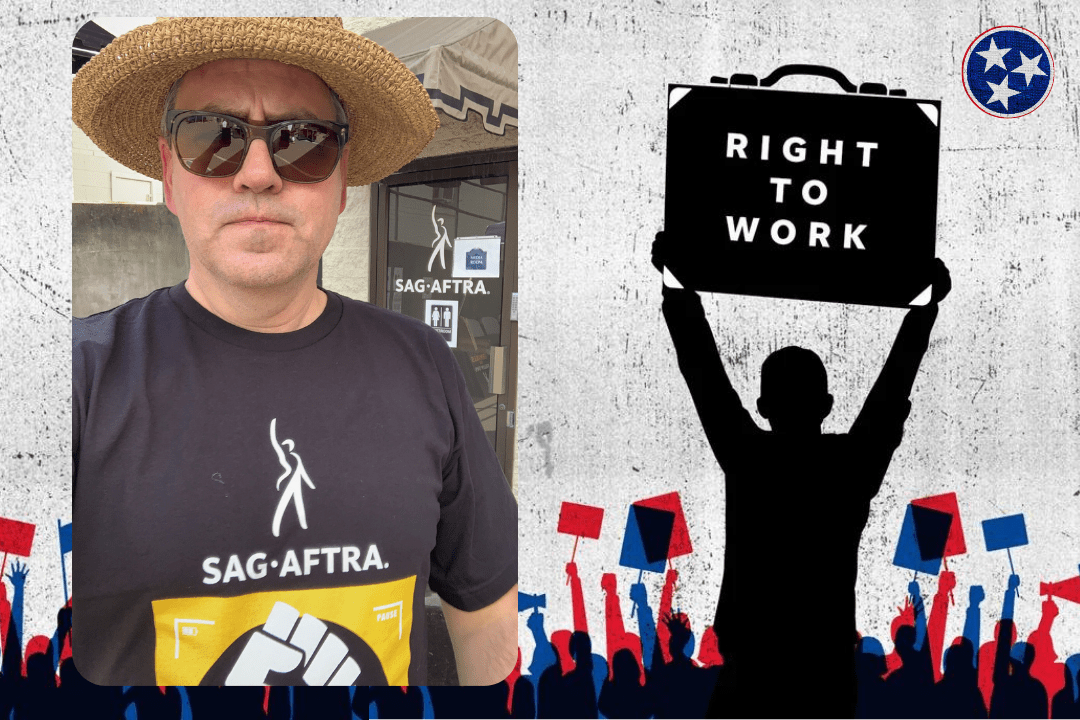
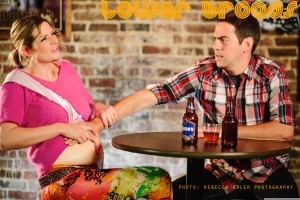
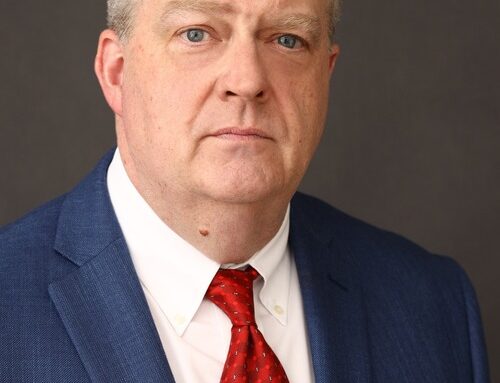


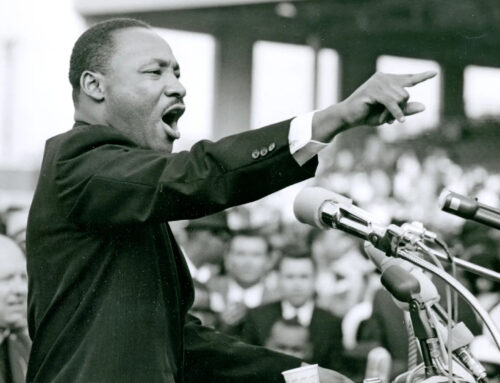






Well said.
Thank you, Dwight. And here’s to creating the Louisville we want as well!!